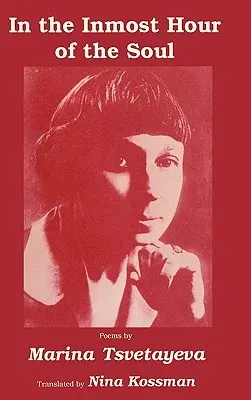Marina Tsvetayeva
(Author)In the Inmost Hour of the Soul (1989)Hardcover - 1989, 25 May 1989

Qty
1
Turbo
Ships in 2 - 3 days
In Stock
Free Delivery
Cash on Delivery
15 Days
Free Returns
Secure Checkout

Part of Series
Vox Humana
Print Length
108 pages
Language
English
Publisher
Humana
Date Published
25 May 1989
ISBN-10
0896031373
ISBN-13
9780896031371
Description
Product Details
Authors:
Book Edition:
1989
Book Format:
Hardcover
Country of Origin:
US
Date Published:
25 May 1989
Dimensions:
22.86 x
15.75 x
1.78 cm
ISBN-10:
0896031373
ISBN-13:
9780896031371
Language:
English
Location:
Totowa, NJ
Pages:
108
Publisher:
Series:
Weight:
408.23 gm